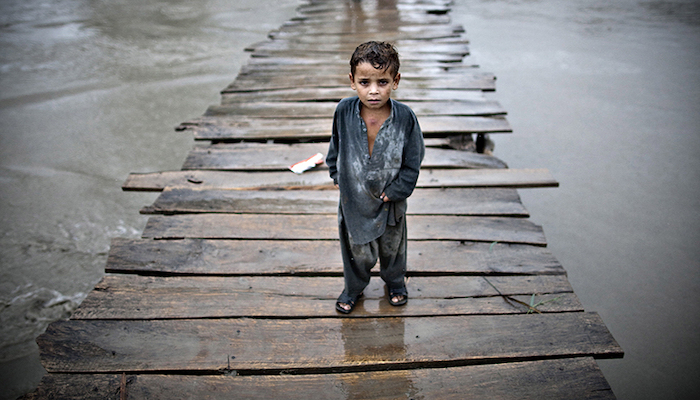[ad_1]

Pakistan is amongst the 33 countries where children are at “extremely high-risk” from the impacts of the climate crisis and pollution, according to a startling report by the UNICEF.
The report, ‘Children’s Climate Risk Index’, for the first time provides a complete picture of where and how children are vulnerable to climate change, said Henrietta Fore, the executive director of Unicef.
The 128-page report warns that nearly half of the world’s children – approximately 1 billion children – live in “extremely high-risk countries” where they are exposed to water scarcity, heatwaves, cyclones, flooding and air pollution.
“The survival of these children is at imminent threat from the impacts of climate change,” notes the report.
The 33 countries where children are most vulnerable include Pakistan, India, Afghanistan, Bangladesh, Niger and Ethiopia.
The highest child climate index is of the Central African Republic at 8.7, followed by Chad at 8.5. Pakistan has an index ranking of 7.7 and India’s is 7.4.
“Every child deserves a liveable planet,” said Fore, at the launch of the report.
Children are more vulnerable to climate and environmental shocks than adults, the report adds, because they are less able to withstand and survive shocks such as floods, droughts, severe weather and heatwaves.
They are also more at risk of death compared with adults from diseases that are likely to be exacerbated by climate change, such as malaria and dengue.
Children “have their whole life ahead of them – any deprivation as a result of climate and environmental degradation at a young age can result in a lifetime of lost opportunity,” the report states.
Unicef is calling for the inclusion of young people in all climate negotiations and decisions, including at the UN Cop26 summit in Glasgow in November.
“Young people deserve greater consideration from world leaders and a more meaningful seat at the table in the decisions that will define their future,” Fore said.
[ad_2]



